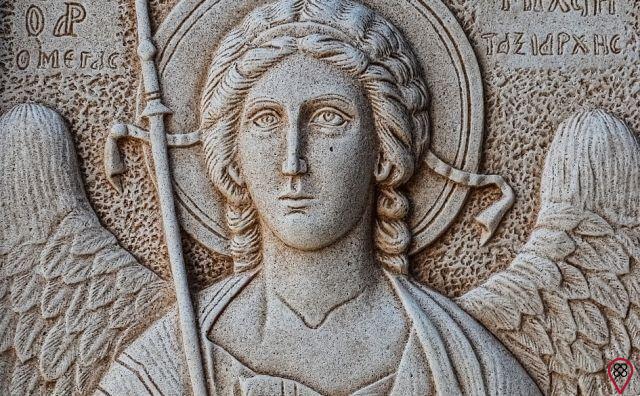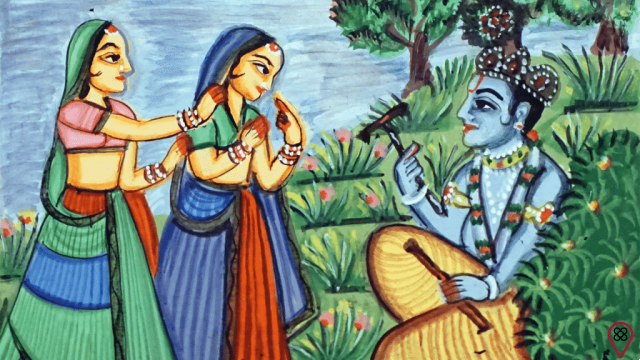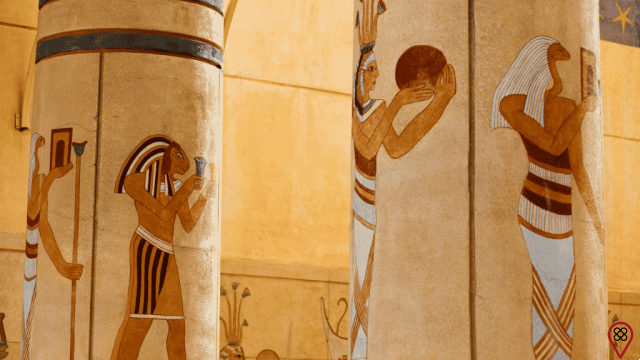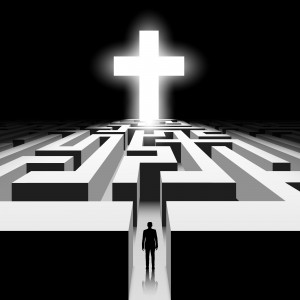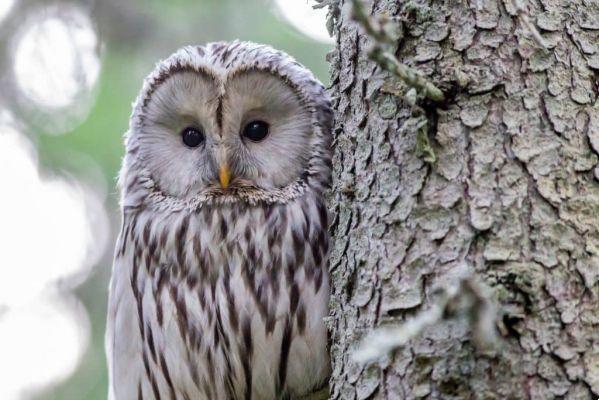Greek mythology is one of the best known in the world. According to the main myths of ancient Greek civilization, there was at the top of Mount Olympus the highest mountain in Greece, a palace inhabited by the gods who ruled the world. Also according to the myths, Olympus was inhabited by the twelve Olympian gods, also known as the dodecateon.
As Greek myths were passed from generation to generation orally, few records of the time survive, such as those made by Homer. Although most myths present twelve gods, these twelve gods are not always the same.
The Greek deities are divided into three groups: gods of the first generation, all brothers and sons of Kronos; second-generation gods, sons of first-generation gods; and minor gods, children of the first and second generation gods and demigods who were worshiped only in certain localities or appeared without much prominence in the myths. See below for a list of the main gods of Greek mythology.
first generation gods
Zeus
Considered the father of the gods and responsible for maintaining order, justice and harmony on Olympus, Zeus is the highest authority among the gods. He is the god of the skies, lightning, thunder and lightning. Son of the titan Cronos, considered the god of time, and of Reia, Zeus is a very erotic character, having been involved with the goddesses Metis, Athena and Hera, in addition to his involvement with several humans, who gave fruit to the demigods: half humans. and half gods.
Ivy
Hera is the goddess of marriage, motherhood, marriage and wives. No wonder she is the wife of Zeus and commands, alongside her husband, Olympus. In addition to being the queen of the gods, she is often associated with a symbol of marital fidelity. In paintings, sculptures, and poems, the goddess is often depicted wearing a crown and holding a pomegranate, which is a symbol of fertility, death, and blood. In most stories, Hera is portrayed as aggressive and jealous towards Zeus' extramarital affairs.
Poseidon
One of the most powerful gods, Poseidon is the commander of much of our planet, as he is the god of the waters and reigns over all the oceans of the world. Also, in some stories, he takes responsibility for some earthquakes. Most representations of Poseidon show him with a pitchfork and accompanied by one or more dolphins, his faithful companions at the bottom of the sea. In the Minoan civilization, which disappeared after the predominance of the Greeks, Poseidon was the supreme god, a post occupied by Zeus in the pantheon of Greek mythology.
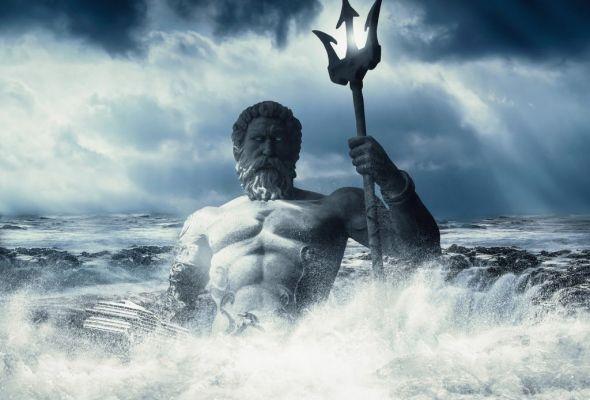
Demeter
Sister of Zeus and, consequently, daughter of Cronos and Rhea, Demeter is the goddess of harvest and agriculture, as well as commander of the seasons. One of the most popular myths she is known for tells the story of when Hades, the god of the underworld, kidnapped Demeter's daughter Persephone as he fell in love with the deity. Saddened and disgusted by the abduction of her beloved daughter, Demeter ordered plants to stop growing all over the world until her daughter returned. After a long time, she made an agreement with Hades, which determined that Persephone would spend ¾ of the year with her mother and ¼ of the year with Hades; this last quarter corresponds to winter, which is when no plant grows, given the sadness of the mother who loses her daughter.
Hades
God of the underworld and commander of the dead, Hades was the most feared god by humans, because of the certainty that the encounter with Hades would cause the inevitable: death. Because of this hatred of humans towards him, Hades is often associated with a villainous and evil figure in the myths, which were gathered by the Greeks of the time. In the famous compendium “The Iliad”, authored by Homer, Hades is referred to as “the most hated by mortals”, so humans preferred to refer to him using other names, such as Pluto.
Hestia
One of the most modest and discreet goddesses of Olympus, Hestia was much courted by Poseidon and Apollo, but had no interest in suitors, so she swore virginity before Zeus and received from the supreme god the honor of being worshiped in every home in the world, for that reason. is considered the goddess of the home, domestic life, family and architecture. Despite being little mentioned in Greek myths, she was a figure respected by all the gods and sought after when one of them needed someone who could mediate a conflict, a role she fulfilled quite efficiently.
second generation gods
Afrodite
Probably the most famous of the Olympian goddesses, Aphrodite is the goddess of love, sex and beauty. In addition, it is often associated with the promotion of life, pleasure and joy in human beings. A curiosity is that Aphrodite was much worshiped on an island near the current territory of Greece; she was so adored that even today that territory is known by the name that the primitive inhabitants of the island gave to the goddess: Kypros (Cyprus, in Portuguese).
Apolo
After Zeus, Apollo was the most venerated among the deities of Greek mythology, so he received several titles and attributions in the myths: god of the sun, oracles and the future, of prophecy, of truth, of music and poetry, of harmony. , balance and reason. He was, according to some myths, the god who most communicated with humans and who informed them of the wishes of the deities of Olympus. As he had this contact with humans, he was the one who made mortals aware of their mistakes and what it took to purify themselves after those mistakes.
Ares
Considered the god of war and violence, Ares is portrayed by many scholars of Greek myths as the god of war in a wilder sense, so he became a symbol of virility. Ares was worshiped in the north of Greek territory, especially in Sparta, land of great and brutal warriors. His sister, Athena, was also considered a goddess of war, although she was considered a goddess of strategic warfare. In some myths, he was portrayed as Aphrodite's partner; she, goddess of beauty and femininity; he, god of virility and masculinity.
Artemis
Known initially for representing the goddess of hunting and wildlife, Artemis was later also associated with magic and the occult arts. In addition to being symbolized by wild animals and hunting, Artemis is often associated with the Moon. She was also considered protective of girls.
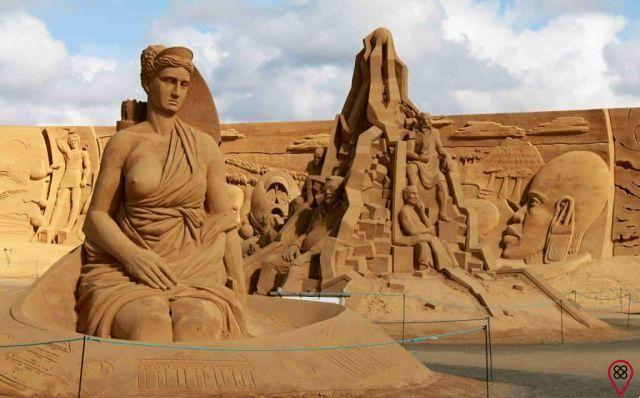
Athena
One of the best known Greek goddesses, Athena was Ares' sister and, like him, was considered a goddess of war, but of strategic warfare and combat tactics. In addition, she was considered the deity of wisdom, inspiration and justice, so she also represented diplomacy and dialogue. She is known for being the patron saint of Athens, a city known since antiquity for its diplomacy and for the study and accumulation of knowledge.
Dionysus
Also known as Bacchus, Dionysus was the god of wine, fun, madness, theater and festivities. He is often associated with bacchanals and orgies, but his image, in the original myths, goes far beyond that, because he was considered the protector of those who did not feel fit in conventional society and therefore lived on the fringes of it. So he also symbolizes chaos, danger and the unexpected.
Hephaestus
Unlike most gods, Hephaestus wasn't beautiful, so he wasn't worshiped by many humans. Lame and deformed, he was the god of technology, blacksmiths, artisans and sculptors, metallurgy and fire, as well as volcanoes. He is usually depicted with his blacksmith's hammer and anvil. In his bronze palace, he forged Pandora, the first mortal woman according to Greek myths.
Hermes
Like Apollo, Hermes was known for many of his characteristics. He was primarily known as the god of communication and travel, but he was also associated with astronomy, magic, diplomacy, and the instruction of the ignorant. He is known as the messenger of the gods, due to his great ability to communicate with his peers, but also with humans. Some historians suppose that the myth of Hermes, which merged with that of the Greek god Thoth, gave rise to the character Hermes Trismegistus, who would have written great treatises on philosophy, theology and medicine, giving rise to the movement known as Hermeticism.
You may also like
- Find out who Zeus is and why he is considered the greatest of all the Olympian gods!
- Stimulate learning with these seven goddesses from Greek mythology!
- Greek Mythology: Everything You Should Know About This Culture!
Other Gods – Minor Gods
Some gods, considered minor gods, did not appear in any list of the Twelve Olympians, but they were frequent figures in Greek myths. Some examples of these gods are Aesculapius (god of medicine), Hebe (goddess of youth), Persephone (goddess of spring and queen of the underworld), Eris (goddess of discord), Phobos (god of fear), Hypnos (god of eternal sleep). ), Morpheus (god of dreams), Muses (nine entities, inspiring the arts and sciences), Nemesis (goddess of revenge) and Thanato (personification of death), but the list is extensive and at least a hundred gods are mentioned. in Greek myths.



